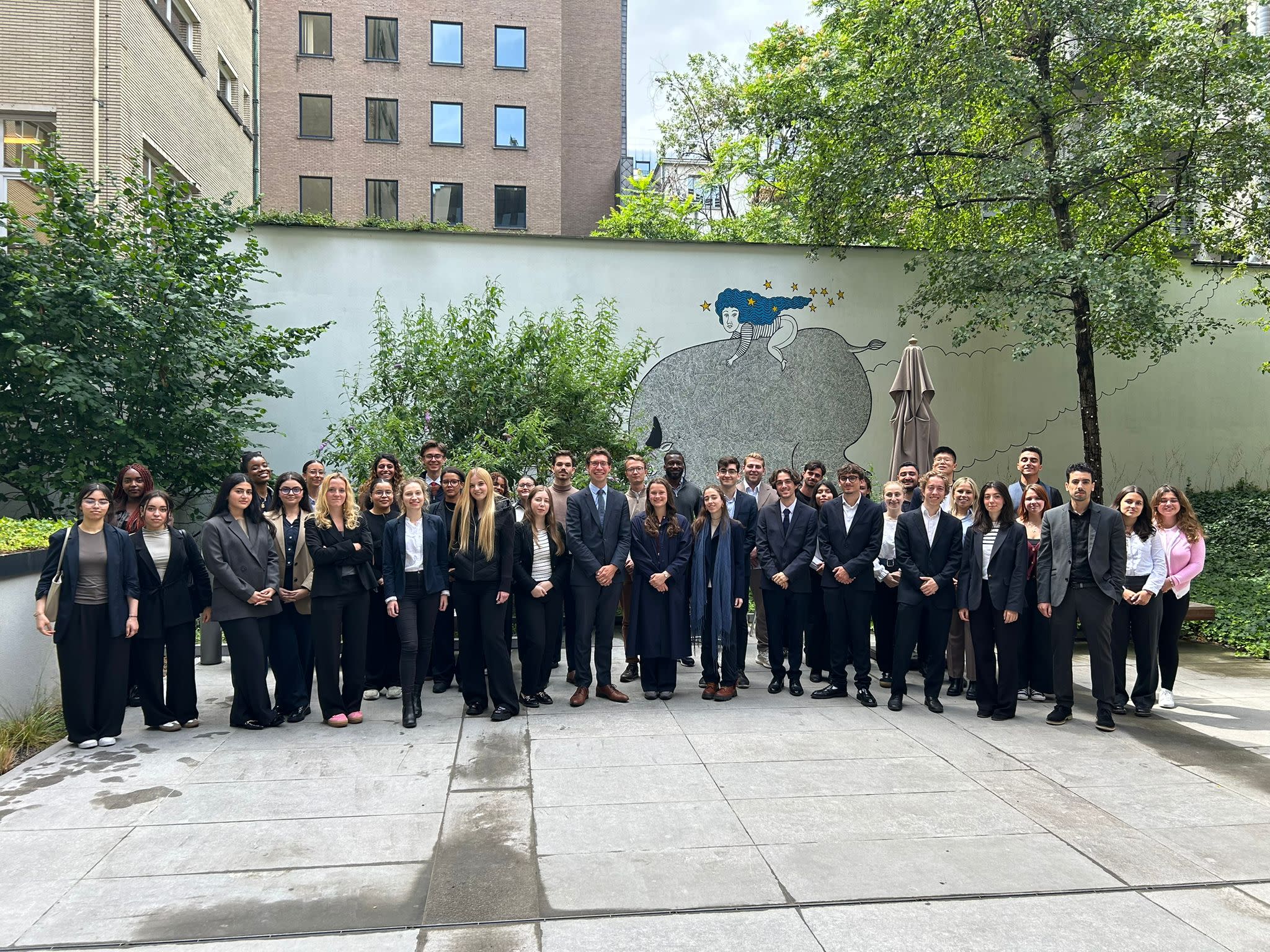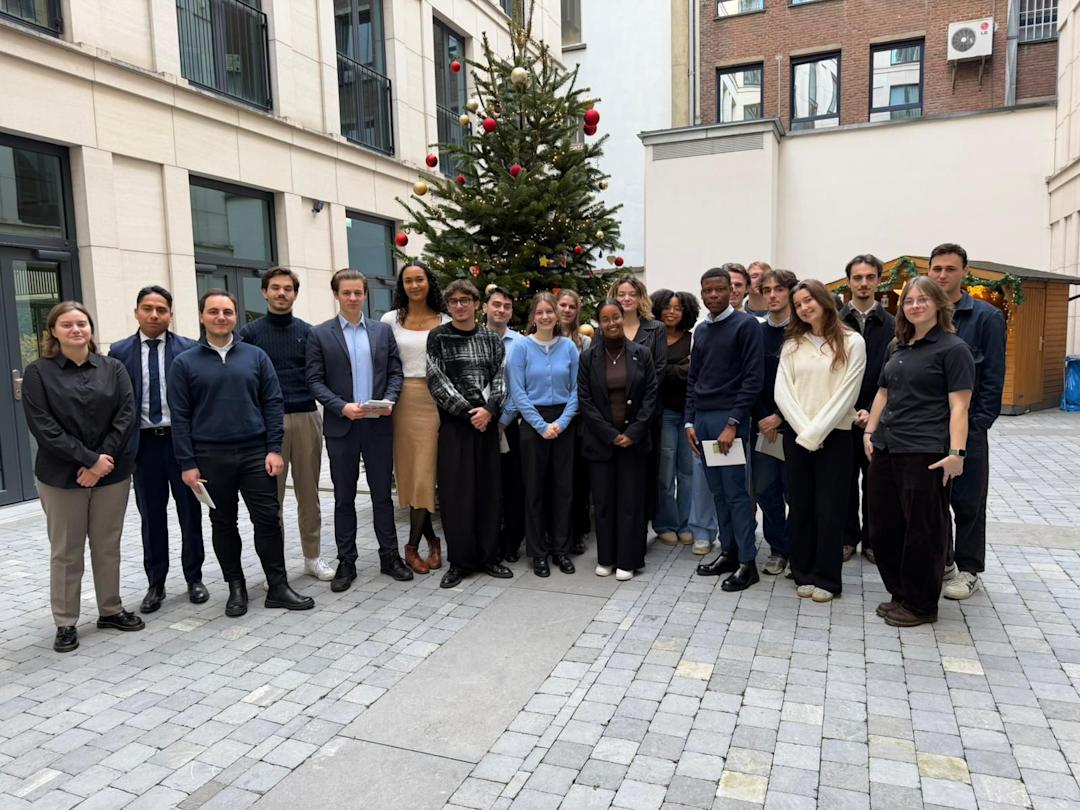Study Week Day 1: Exploring European Diplomacy

As part of our Study Week, held from July 7 to 10 to explore different aspects of diplomacy and international relations, the first day was dedicated entirely to European diplomacy.
The Permanent Representation of Belgium to the European Union
In the morning session, we were warmly welcomed by Sir Alexandre Brecx, Spokesperson of Belgium’s Permanent Representation to the European Union, who kindly introduced himself and shared insights into his work .
He explained to us the Permanent Representation’s role that is often misunderstood . Staffed by about 160 people drawn equally from the FPS Foreign Affairs, other federal services, and Belgium’s federated entities , it is led by three ambassadors and work as a “Mini‑Belgium”: it brings all parts of the Belgian state under one roof. Yet, unlike a typical embassy abroad, it sits on Belgian soil in Brussels while performing the same diplomatic duties of representing Belgium within EU institutions.
Sir Brecx then explained how Belgium’s position in the Council is formulated. Under the 1994 Cooperation Agreement, the Directorate‑General for European Affairs and Coordination convenes coalition parties, federated entities, and subject‑matter experts to build a unified national line in foro interno . That consensus is subsequently defended in Brussels in foro externo by the Permanent Representation’s two COREPER formations, which prepare and steer ministerial deliberations. He also emphasized the Representation’s continuous legislative monitoring, its role in briefing national authorities, and its oversight of EU‑law transposition and implementation.
Finally, he illustrated the workload’s intensity by recalling Belgium’s six‑month rotating Presidency of the Council from January 1 to June 30, 2024. He also shared with us his own diplomatic career path and offered practical advice and information on potential career opportunities.
The European Parliament
After lunch, we enjoyed a guided tour of the European Parliament. The guide reviewed the EU’s foundational principles, values, and historical milestones, engaging us with interactive questions. We then toured the hemicycle, where she highlighted its architectural and procedural features and underscored the critical role of interpreters in managing sessions across all 24 official EU languages , an indispensable task that ensures every citizen can follow debates and access documentation in their mother tongue.
This enriching programme not only shed light on how Belgium’s voice is shaped and projected at the EU level, but also fostered connections among participants and highlighted the central importance of the European Parliament in the Union’s democratic life.

